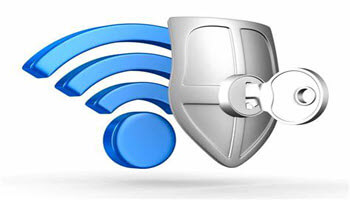Overview
For those of us living in a hemisphere where Vegemite is NOT considered fine cuisine, summertime is approaching. That means surf, sun, travel, and time with family. It also means you may need to use public Wi-Fi. Public Wi-Fi is an open network often available at coffee shops, fast-food restaurants, libraries, hotels, and other locations. It is convenient, and when traveling, it may be the only way to browse the internet or check email. There are some best practices you should follow when using public Wi-Fi.
What Is Wrong With Public Wi-Fi?
Before we discuss the best practices when using public Wi-Fi, let’s first address the associated issues. Public Wi-Fi is an insecure open network. Nearby users can theoretically intercept your data. Additionally, hackers can set up fake Wi-Fi hotspots that resemble legitimate public Wi-Fi networks. Connecting to these networks can expose your login credentials, email, text messages, and any other data you enter while connected.
Public Wi-Fi Best Practices
1) Use A VPN
Using a VPN (Virtual Private Network) is most important when using public Wi-Fi. A VPN is an encrypted tunnel between your device and the VPN provider. A VPN is not a security application. What a VPN does is securely move your internet connection from your network provider (in this case, the public Wi-Fi) to the VPN’s server. Trust in your VPN provider, therefore, is one of the most important factors when choosing a VPN provider.
Premium VPN
It is best to use a quality paid VPN. Paid VPNs offer more features, more server locations, better speed, and unlimited data. I personally have a paid Windscribe subscription. Proton topped Jim Hiller’s Best VPN -2023 list.
Free VPN
Even if you’re short on cash, you can use a free VPN to enhance your online privacy. However, if you need to use a free VPN provider, proceed with caution. In the past, many free VPN providers were unreliable, leaky, or even malware. Two recommended free VPN providers are:
Windscribe Free – Unlimited connections, no feature restrictions, 10 country server locations, and 15+ GB of data per month.
ProtonVPN Free – One device connection limit, limited features, five country server locations, and unlimited monthly data.
Related article: Read this series of articles to learn why and how I added a VPN to my home network
2) Use Secure Websites
HTTPS (Hypertext Transfer Protocol Secure) is a secure version of HTTP for transferring data over the Internet. It encrypts data exchanged between web browsers and websites, protecting sensitive information from interception. Always look for HTTPS in the URL bar of your browser before entering personal information or login settings. Never make purchases or access sensitive accounts on non-HTTPS websites.
3) Use Two-Factor Authentication
Set up two-factor authentication (2FA) at all sites where it is offered. 2FA requires an additional verification step to prevent unauthorized access.
Related article: Check out this article to learn about the importance of 2FA and the consequences of turning it off
4) Avoid Accessing Sensitive Accounts
If possible, wait to access sensitive accounts until you are on a secure network. These are accounts that contain personal or financial data. In other words, avoid online banking, checking your credit card statements, paying bills, and online shopping when using public Wi-Fi. If it is available for the service, use a mobile application instead of logging in to the service through a browser.
5) Disable Sharing Features
File sharing can make your device vulnerable to unauthorized access. Turn off file sharing, AirDrop, and any other device discovery features when using public Wi-Fi.
6) Clean Up When Done
After using the public Wi-Fi, log out of your accounts, clear your browsing history and data, and “forget” the network. This will prevent your device from connecting automatically the next time you are in that location.
7) Keep Your Devices Updated
Finally, ensure that your device’s operating system, applications, and security software are all up to date.
The Bottom Line
During the summer, we may find ourselves in situations where we need to use public Wi-Fi. Although public Wi-Fi is convenient and widely available, it may not be secure. Public Wi-Fi is an open network where your data can be intercepted. Additionally, hackers can create fake Wi-Fi hotspots. This can expose your login credentials, email, text messages, and any other data you send while connected to them. Any time you need to use public Wi-Fi, follow the best practices mentioned in this article (the most important being to use a trusted VPN). Following these practices can help protect your personal data.
—

I would also add look for anything official e.g. some cafes may have the WiFi Name on the menu. Make sure the name you click matches the name they provide, looking carefully for any similar names or slight typos.
For example Free WiFi and Free-WiFi
Hey Peter,
Thanks for the comment. Although I did mention that “hackers can set up fake Wi-Fi hotspots that resemble legitimate public Wi-Fi networks”, I should have mentioned that, if it is possible, check (i.e. sign, menu message, asking an employee) that you are actually signing into a legitimate public Wi-Fi.
JD